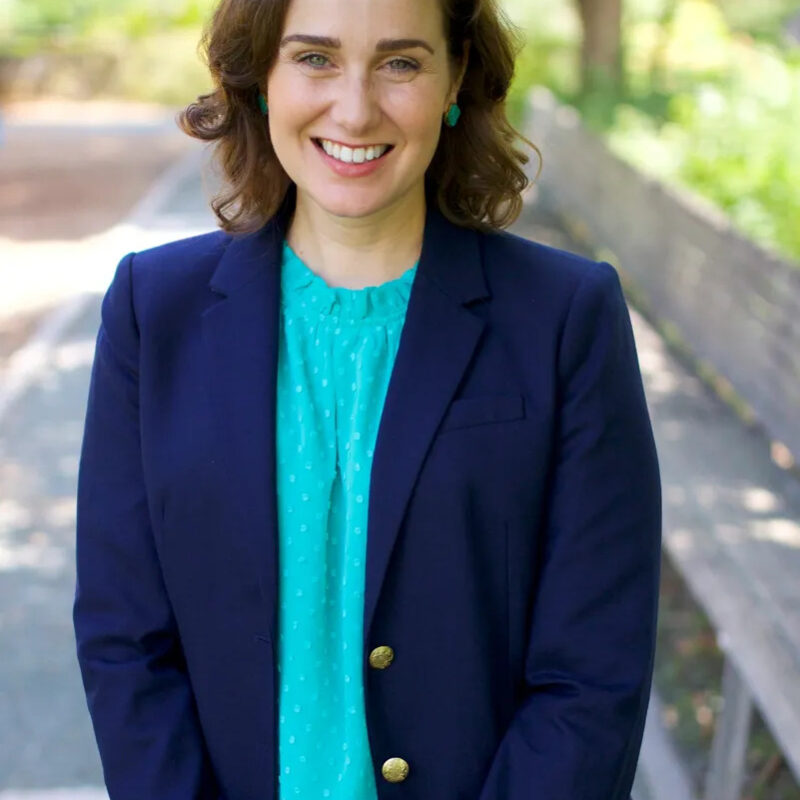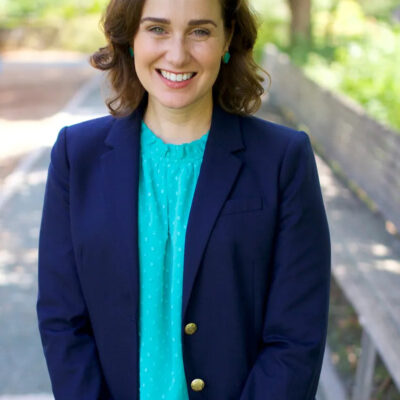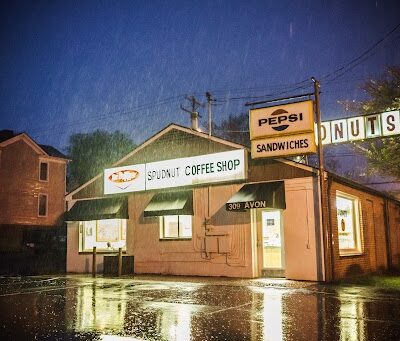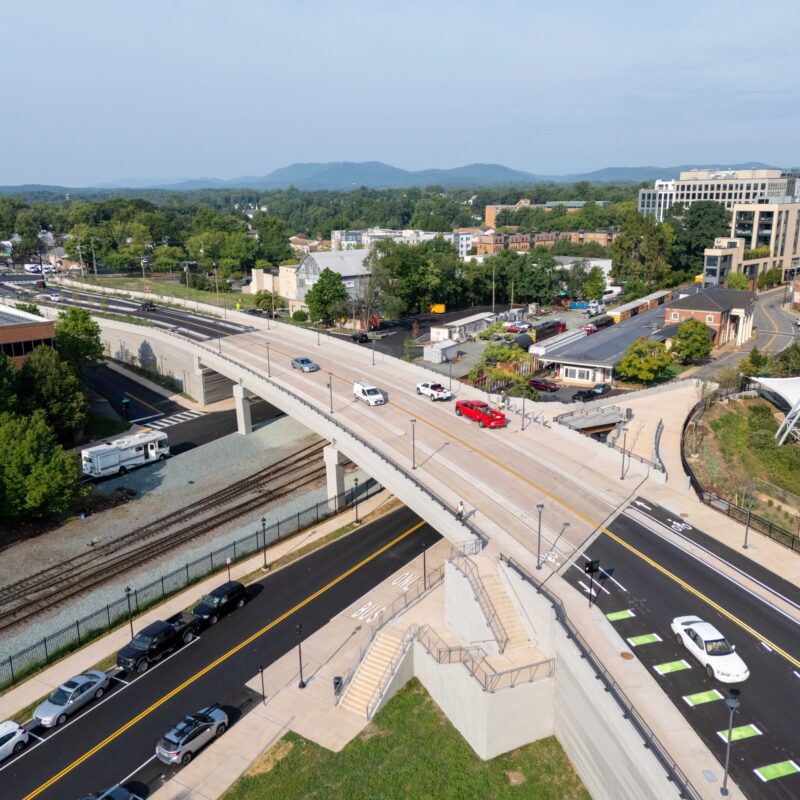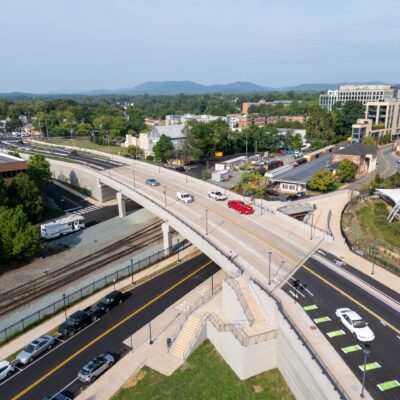Around the country this past Sunday, communities big and small held events to commemorate the 10th anniversary of 9/11 and to honor the nearly 3,000 people who died as a result of the Al Qaeda attacks on the World Trade Center, the Pentagon, and United Airlines Flight 93. Charlottesville’s ceremony also recognized the soldiers who have died in the wars in Iraq and Afghanistan in the decade since and the men and women who die in the line of duty providing emergency services.
|
Ntelos Wireless Pavilion, Sunday, September 11 |
Ntelos Wireless Pavillion, Sunday, September 11
But behind the ceremonies was a more complicated narrative, one that tracks the way our country has changed over the past decade as a result of The War on Terror, which has been fought on many fronts, ideologically and actually, at home and abroad.
The 10th anniversary of 9/11 offered a chance to reflect on how our country has re-shaped its relationship to the rest of the world, and, most particularly to the Middle East, in response to the attacks.
Phillip Zelikow, associate dean of the Graduate School of Arts and Sciences at UVA, served as executive director of the 9/11 Commission, which was charged with investigating the series of events that led to the terrorist attacks. He was recently appointed to President Barack Obama’s Intelligence Advisory Board.
The latest version of the 9/11 Commission Report, published by W.W. Norton and Company, contains an afterword from Zelikow that seeks to put the events of the past decade in perspective.
“In the rare cases when a historical event, especially a traumatic event, stirs emotions on a massive scale, touching many millions of people, it enters popular culture. Great numbers of people soon form beliefs about what happened and why––creating a historical narrative. It is difficult to overstate the significance of these narrative beliefs,” he wrote.
Zelikow was part of the country’s immediate effort to make sense of the security breach the 9/11 attacks represented. He sees subsequent policy initiatives as a response to a fundamental change in the country’s understanding of its place and vulnerability in the world.
“Some people say in retrospect that we overreacted to the trauma. Some people would say, a fewer number, that we under-reacted to the trauma and still haven’t done enough,” Zelikow said. “But the overall, the net story is that the country was shocked and surprised that a handful of religious zealots from the most impoverished region of the earth could reach out and strike us in a way that was more devastating than the Japanese attack on Pearl Harbor and closer to home.”
Zelikow has been intimately involved in the nuts and bolts of the country’s response to terrorism. While he understands that the killing of Osama bin Laden has in many ways satisfied the popular thirst for justice, he wonders why there is less urgency about bringing the other perpetrators of 9/11 to trial.
“The next really big event that I wish folks would focus on a lot more than they have is to get these people to trial,” Zelikow said. “I’m kind of surprised that hardly anyone has mentioned the fact that the people who perpetrated this tragedy––some of the key masterminds––are in our custody and have not yet been brought to trial for the worst crime committed in the United States.”
Trying the masterminds of the attacks will, he believes, bring more information to light and help us understand how and why they were undertaken.
“It’s the nature of the trial process that it will dig a little deeper, because you’ll get a different intensity of attention to evidentiary details.”
David Swanson, an author and peace activist, is the organizer of the upcoming conference MIC at 50 (warisacrime.org), which will be held this weekend at The Dickinson Fine Arts Center at Piedmont Virginia Community College. The conference will examine the human costs of the wars in Iraq and Afghanistan and the impact of the military-industrial complex on American society.
Swanson believes the 9/11 attacks should have been treated as crimes, not as an act of war.
“September 11 was an incredible failure of our government to say the least, but it was a crime that they turned into an act of war by a very twisted sort of alchemy that no one had ever tried before,” Swanson said.
He also thinks the country’s participation in the wars in Iraq and Afghanistan have created a national mindset that accepts war as a norm.
“It has convinced much of the world and much of the American public that war is the normal state of affairs for the United States of America,” Swanson said. “That we don’t have peace as a status quo interrupted by war. We have war, and peace would be something requiring particular justification.”
Swanson believes the message of the 9/11 attacks was that no amount of military force will ever create a more secure world.
Charlottesville Fire Department Chief Charles Werner has served in his department for 34 years. Werner played a major role in organizing Charlottesville’s memorial to the 9/11 attacks. Werner said he was motivated to plan a public event, because he saw it as an opportunity for the community to rally together at a time when the political atmosphere is fraught with division.
“We also have a lot of divisive things that are occurring in our community. So it seemed to me that this was an appropriate time for us, for lack of a better term, to rally around the flag. To come together with a sense of unity as a community and as a country, to take the losses we suffered that day and to make something meaningful out of them,” Werner said.
The anniversary spurs a simple reaction in Werner.
“This isn’t about supporting wars. This isn’t about politics. This is just to the root of the matter of remembering all those that died that day and the families and friends that were adversely effected,” Werner said.
The past decade has changed the way Werner views his job and changed the job’s requirements. Now his department is part of a national web of emergency service agencies.
He believes the 9/11 attacks helped to emphasize our dependence on one another under adverse circumstances.
“[The steel girder from the World Trade Center on display in Charlottesville] is a symbol of both strength and vulnerability,” Werner said. “While on its normal day it has this great tensile strength that holds up skyscrapers, on its worst day it’s burnt, it’s bent, it’s twisted, it collapses. And then what comes after that is our resilience as a people, of coming together and putting aside our differences.”
Andre Slonopas, a graduate student in aerospace engineering at UVA, was a senior in high school in Cleveland, Ohio, on September 11, 2001. The following year, Slonopas enlisted in the Army. In 2003, he deployed to Paktiya Province in Afghanistan as an infantry sergeant, 2nd Battalion, 504th Parachute Infantry Regiment, 82nd Airborne Division. Slonopas spent four years in Afghanistan.
Slonopas remembers watching the 9/11 attacks on television and feeling his resolve to join the military increase.
“By that time I had pretty much made my decision that I was going in the military,” Slonopas said. “I was going to enlist. So when the event took place, it just made me more sure I wanted to go in. I couldn’t wait to graduate high school to go and serve.”
Slonopas said his view of why we went to war in Afghanistan changed once he was over there.
“I was going in there to support democracy and stuff like that, but I guess my views have changed a little bit over the years. It’s more like we’re trying to stop the people there from fighting each other rather than promoting any other ideals,” Slonopas said.
He spent Sunday with his National Guard unit in training. He sees the anniversary as a time to think about fallen comrades and their families.
“A lot of people lost a lot of people they love, you know. For the next 50 or 60 years there are people who have lost their fathers and mothers. That’s the hardest thing,” Slonopas said. “Not only in the World Trade Center but also in the wars in Afghanistan and Iraq. Now a lot of people are going to grow up not knowing what it’s like to have a father for example.”
William Quandt is a professor of Middle Eastern politics at UVA. Quandt also served as a staff member on the National Security Council in the ’70s and was actively involved in the negotiations that led to the Camp David Accords and the Egyptian-Israeli Peace Treaty.
The 9/11 attacks and the U.S. military response turned the world he studies upside down.
“If you look at the entire history of U.S. relations with the Middle East up until 2000 and then you look at the past decade it’s a night and day difference,” Quandt said. “We had never deployed significant military forces to the Middle East before 2000, with a brief exception in 1958 in Lebanon… we had pursued our national interest in a very different way.”
Quandt sees the U.S. attempts to dismantle Al Qaeda and the war in Iraq as two separate initiatives with different outcomes.
“Crushing a small terrorist organization in Afghanistan when you’re the greatest world power in history should not have been an enormous challenge and we eventually did it…,” Quandt said. “We were able to defend our core interests by attacking those who had attacked us, and I’m glad we were able to but it was a sideshow in the Middle East.”
As a student of the region, he thinks the U.S. essentially misused its resources in Iraq.
“Iraq is probably a less awful place but it’s not a shining example of democracy in the Middle East that we can feel real good about,” Quandt said. “It’s a very iffy outcome after the expenditure of $1 billion and 5,000 American lives and hundreds of thousands of Iraqi lives.”
As a teacher, the past decade has put his field of study in the spotlight.
“Ironically, bad news in the world is sometimes good for those of us who study it. People are more interested. They take seriously the need to study the history and the languages. As a professor, I’ve never had more students eager to study what I teach.”
Quandt sees the 10th anniversary of 9/11 in the light of the events of the Arab Spring, during which a number of repressive regimes were ousted. As the U.S. gets ready to leave Iraq, Quandt sees cause for optimism in the Middle East.
“This is a region that is now finally undergoing some changes and some of them are very positive,” Quandt said. “We don’t know where what’s happened in Tunisia, Libya and Egypt will end up, but some really bad leaders have been replaced… it’s not going the direction of radical Islam, which is what people were always worried about.”
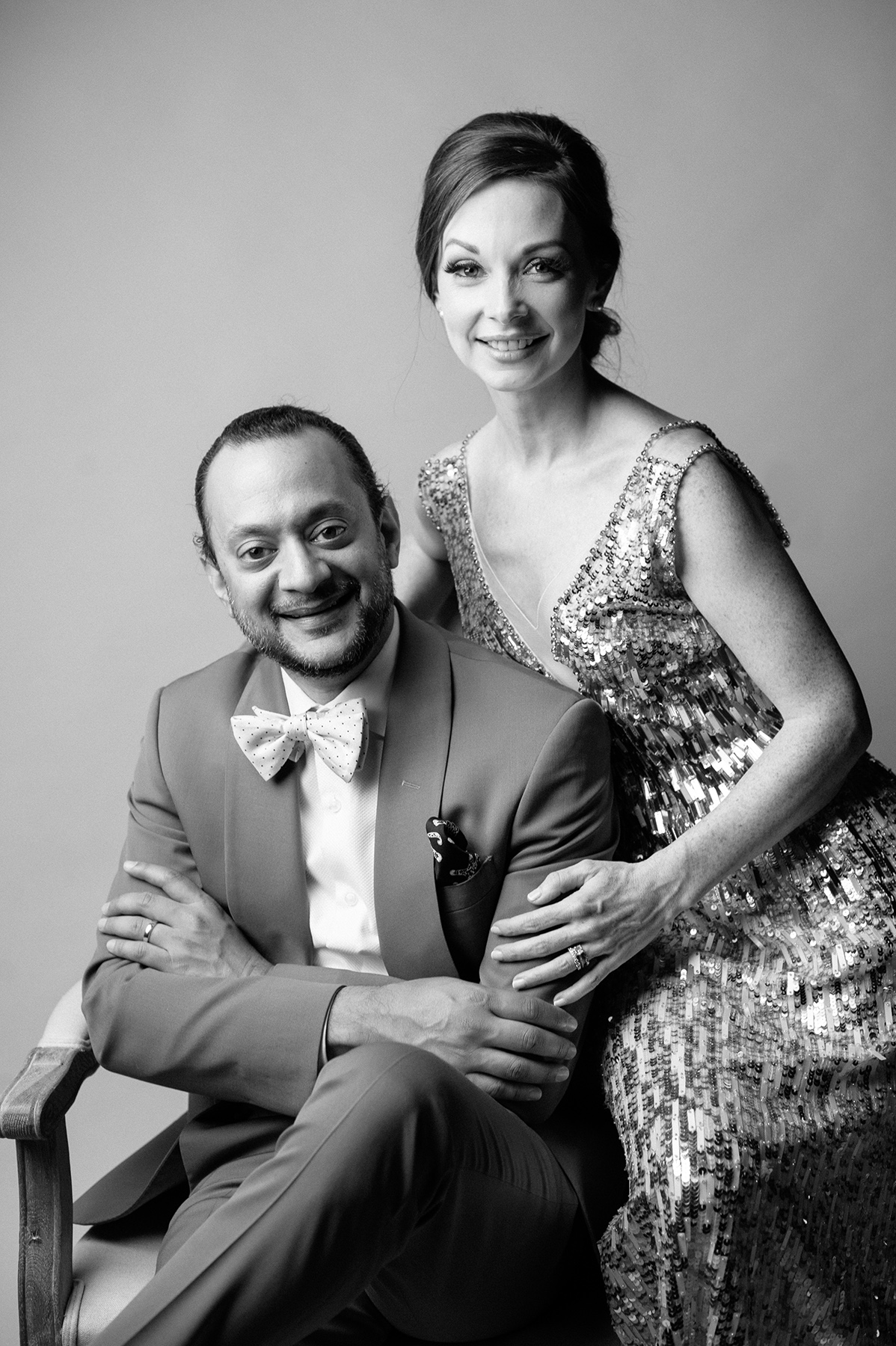/C'Ville-911-037.jpg)
